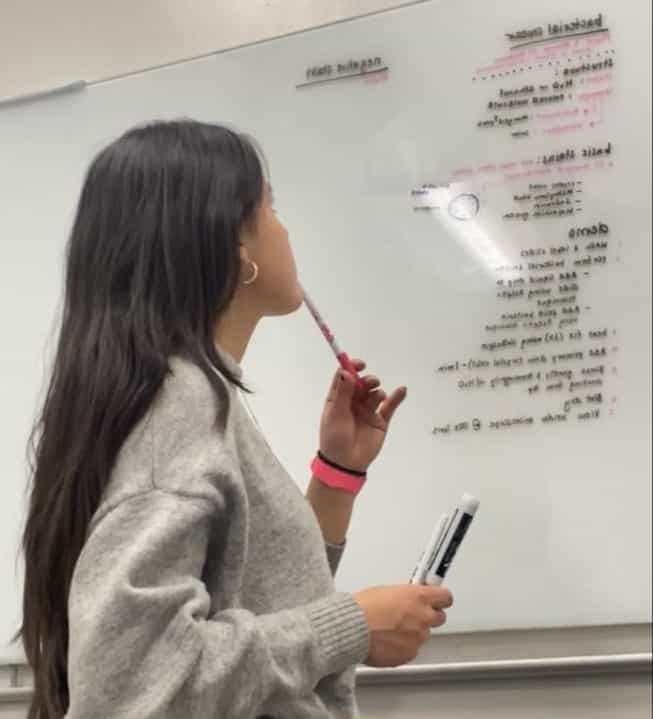picture via pinterest
When it comes to achieving our goals and getting shit done, procrastination is often our biggest enemy. It hinders our productivity and wastes valuable time. In this post, we‘ll explore 13 tips on how to overcome procrastination and even boost productivity further.
ONE:
First and foremost we need to identify the underlying causes of procrastination. The most common ones are fear of failure, perfectionism, lack of clarity, and overwhelming tasks. Identify what causes you to procrastinate. This gives you clear points to work on by developing strategies to eliminate these triggers.
TWO:
Develop habits and routines. I know, I know you‘ve heard a thousand times but it‘s so crucial to boosting productivity. If you struggle with habit-building I highly recommend the book „atomic habits“ by James Clear.
Habits and routines help you turn these annoying tasks into automated parts of your day like brushing your teeth. With repetition, this habit becomes easier to do and requires less discipline.
THREE:
Overcome perfectionism. Realize that every task you do doesn’t have to be perfect, putting in the best effort that you currently have will bring you places that this „it has to be perfect or nothing“ mentality won‘t. One of the reasons is that it leaves room for learning and improvement.
Often this mentality makes us procrastinate because we doubt ourselves thinking we‘ll never achieve this perfect standard we set when all we need is to just start.
FOUR:
Eliminate distractions & create a clutter-free workspace. Whenever you sit down to work make sure that your environment serves the purpose of your task. Remove all distractions like your phone, clutter, or things that draw your attention elsewhere. If it’s out of sight, it’s out of mind.
Make everything in this space serve a purpose for your task. This way you increase focus and eliminate the chances of getting distracted.
FIVE:
Use the “eat the frog” method. This method is about doing the hard thing first. Early on in your day, you have more willpower to do the task that requires a lot of discipline. When the hardest task is done you most likely feel relieved and accomplished and get a new swing of motivation to carry you through the rest of your day. By postponing hard tasks they will only pile up leaving you with a mountain of work that never stops growing. The best thing you can do is to tackle them head-on, preferably as early as possible.
SIX:
Set clear goals & prioritize. If you don’t have a clear vision no wonder you procrastinate. You don’t even know where you’re going. You don’t have to have calculated every step from here to your grave but sit down and set some clear goals at least for the near future. Then the action you need to take will become clearer and you have a sort of roadmap.
Also, prioritize your goals. Often we set multiple goals and can’t give them the same amount of attention. That’s why it’s essential to prioritize our goals and to figure out how much time we’re able to invest in each goal, how that time is invested, and when.
SEVEN:
Getting overwhelmed by the big tasks you need to do? Break them down into smaller chunks. If you break tasks down that seem huge into smaller bits it seems more manageable and you have a clearer idea of where to start. It gives you a feeling of accomplishment when you get to cross off the little things and before you know it it’s done and you wonder why you got so overwhelmed. It might have been a lot but not impossible.
EIGHT:
Use time-management techniques. These techniques can really help with organizing your tasks and gaining clarity. Also, they help track your effort. One method that I love is time-blocking. Essentially you block certain hours of your day for specific tasks. In that time you only focus on the task at hand. Let’s say from one pm to three pm you only focus on studying and then from three to five you do household tasks. For me, it lifts the pressure of having to complete the task by working from start to finish and shifts my mindset to working on it consistently so I’ll be able to just focus on what I need to do with less pressure.
NINE:
Cultivate accountability and support. Find someone with shared goals and keep each other accountable. Even create an accountability group with more people to support and motivate each other.
You can also keep yourself accountable by habit-tracking and checking in with yourself and your intentions and goals regularly.
TEN:
Take care of your body and mind. These two components are crucial for our productivity. The body allows us to function every day, it regulates so many tiny things that add up to ensure our overall well-being. Therefore it’s so important to listen to our bodies and give them what they need such as enough sleep, movement, and a healthy diet. Our mind contributes to our well-being just as much as the body. We can support the mind by taking care of our mental health and prioritizing a work-life balance to prevent burnout.
ELEVEN:
Reward yourself. Be sure to reward yourself whenever you’ve accomplished anything. Make it mean something more than just hitting another goal. I didn’t do this for so long. That’s one thing I deeply regret. I did not appreciate my effort enough and therefore it felt like I never won. Appreciate yourself more for how hard you worked to achieve this goal because we both know it wasn’t easy.
TWELVE:
Use the “urge surfing” technique. The origin of this method comes actually from addiction psychiatry but it’s applicable to procrastination as well. Basically, this technique says that when you get the urge to do anything other than your task at hand don’t give in to the urge instead “surf this urge wave” knowing that it will go away. Over time that urge will then actually subside.
THIRTEEN:
Evaluate the most effective strategies for you. The most effective way to improve is to evaluate what works. In areas like self-improvement that’s often individual to each person. Identify what methods work for you and disregard what doesn’t. However, I highly recommend trying different techniques to be able to make a productive comparison.












